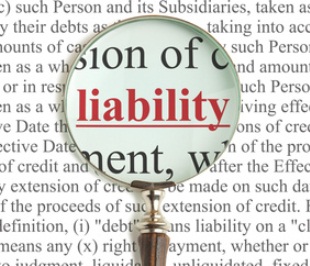1. Determine if your loved one had a Will and gather other important documents.
Ideally you will know the answer to this question in advance, but if not, one of the first things you should do once your loved one's burial has been taken care of is to begin the search for a Will. If you cannot find the original, in many cases a copy will be acceptable.
Also, be sure to gather any deeds, business paperwork, bank account information, tax returns, birth and marriage certificates, bills, loan information, and other paperwork that may look important to you.
Often, this paperwork can be located by contacting the deceased's attorney or accountant. You should also check with any banks your loved one may have used to look for safe deposit boxes.
2. You are not responsible for your loved one's debts.
Lots of people feel a deep sense of responsibility for ensuring their loved one's last debts are taken care of. This is an admirable goal, but you should be aware that under the laws of the State of Tennessee, if you did not sign for a debt, it is not your responsibility. This means if your parents owed a large sum of money to a credit card company for example, and your name is not on the credit account, you are not responsible for that debt.
All debts and taxes will be paid from the deceased's estate. If there are not enough assets available in the estate to satisfy all the debts and taxes, the estate will be insolvent.
3. If you have a power of attorney from your loved one, it is no longer valid.
It is very important to be aware that when someone dies, any power of attorneys that they may have signed are no longer valid. These documents last until death only. If your loved one gave you a power of attorney for them, once they pass, you should immediately cease using that document to act on your loved one's behalf.
4. Protect assets if possible.
In the chaos that comes with the process of grieving, assets can be damaged, destroyed, lost, or stolen. It is important that the family take steps to protect the assets of your loved one and their estate. Until an estate is probated, no-one should take or distribute anything, including money, personal property, or vehicles. All of these assets can be very difficult to recover if lost.
As a part of protecting assets, make sure that someone is responsible for collecting the mail of the deceased. Your attorney will use this mail as a way to help determine what debts, if any, your loved one may have owed.
5. Take an inventory of assets and liabilities.
One of the most unpleasant, but most important parts, of any estate, is the inventory of assets and debts. Following a loved one's death, you should begin to assemble a list of what they owned. This may include:
- 401k/IRA/Pension/Retirement Accounts
- Personal property such as jewelry, art, or clothes
- Vehicles
- Real estate and property
- Businesses they may have owned
- Bank accounts
- Life insurance policies
- Investment accounts (stocks and bonds)

This list of what your loved one owned will stand against what they owed. Similarly, a list of debts should be assembled.
These lists will help to determine the total value of the estate.
6. Minor children.
If your loved one had minor children, and one or both of the children's parents have passed away, a guardian will need to be appointed by the court. This is an important and often complicated process, and, if your family is in this situation, you should contact an attorney right away.
7. An estate probably needs to be opened.
Just because your loved one may have not been "rich," does not mean an estate will not need to be opened. The probate process is the process by which assets are distributed and debts are paid. If debts go unpaid, creditors are legally allowed to open an estate once a period of time passes. It is especially important to note that if your loved one was receiving TennCare benefits at their death, an estate will need to be opened to handle the TennCare estate recovery process.
While this list may seem daunting at first, contacting an attorney specializing in the probate process will allow you to make sure that your loved one's last wishes are carried out in the appropriate, legal, process.
If you have any questions about the probate process, give The Law Offices of Andrew E. Bateman a call to discuss these matters at 423-381-0255, or visit our website to contact us.
